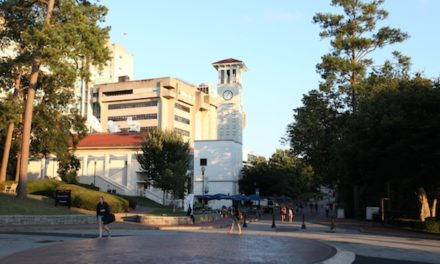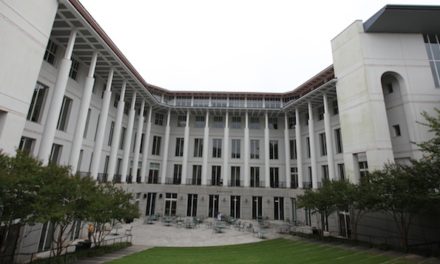By Annie McGrew
Staff Writer
A new freshman seminar teaches students to be critical of the media and analyze the ways in which news coverage affects perceptions and stereotypes of ethnic minorities.
The seminar, titled “American Studies 190: News Coverage of Ethnic Minorities,” is being taught this fall by Senior Lecturer in the African American Studies department and Professor in the former Journalism Program Nathan McCall.
McCall offered a variation of the course several years ago when he was teaching in the Journalism Program but decided it was “a good time to refine the old version of the course and adapt it to today’s realities,” he wrote in an email to the Wheel.
According to McCall, so far the class has focused on studying the early media’s historic misrepresentations of four ethnic groups: Native Americans, blacks, Latinos and Asians.
The class has studied patterns in the ways each group has been stereotyped and how these stereotypes often led to mistreatment and dis- crimination by the American public and American leaders.
McCall and students are currently studying the media’s professed standards of ethics and will assess to what degree the media has or has not lived up to those standards.
In reference to recent media coverage of the shooting of Michael Brown in Ferguson, Missouri, McCall wrote that the timing of the class could not have been better.
Brown, an unarmed African American teen, was shot by Darren Wilson, a white police officer, on Aug. 9, an event that ignited racial tensions and protests in Ferguson and around the United States.
“I’ve told the students that we’re in the midst of some special transformative ‘moment’ as it relates to race relations in America,” McCall wrote.
He remembers America in a similar moment in the 1950s, when racial tensions were highly fostered partly by the murder of Emmett Till, an African American 14-year-old who was murdered in 1955 for allegedly flirting with a white woman.
Till’s murder trial attracted a vast amount of media attention at the time and is noted as a pivotal event motivating the U.S. Civil Rights Movement.
“Now, in the 21st century, the shootings of Trayvon Martin and Michael Brown stand as reminders of the unfinished work to be done on the racial front,” McCall wrote. “In a much less dramatic way, that point really hit closer to home for students recently, with two widely reported racial incidents occurring, virtually back-to-back, right on our campus,” referring to the vandalization of Alpha Epsilon Pi’s fraternity on Oct. 5 and the alleged racial bias incident that occurred during a flag football intramural game on Oct. 20.
James M. Cox, Jr. Professor of Journalism Hank Klibanoff said he is glad McCall is teaching the course.
“I think the media can be enormously influential in informing public opinion about ethnic groups,” he said.
Klibanoff finds McCall’s class hugely important especially in understanding Atlanta, who we are as a people and what our diverse histories are.
“It’s important to examine news coverage of people because that’s how we learn about each other,” he said.
According to McCall, he thinks that students have mostly been surprised to see how much of the history they have covered in class gets repeated today.
In class, McCall wrote that they shift between old and current news so that students can better connect the dots between both the past and the present.
College freshman Hannah Conway wrote in an email to the Wheel that McCall’s class is her favorite class that she is taking this semester.
Conway noted that despite having an increasingly diverse and globalized campus, McCall’s classroom is one of the few discussion-based classes that she feels truly promotes cross-cultural dialogue among different students.
“[McCall’s class] challenges me everyday to step back, recognize my privilege, tear down any internalized stereotypes I may have and really think before I talk,” Conway wrote. “I feel like I have grown tremendously in this class.”
College freshman Alana Rettig also wrote that she really enjoyed McCall’s class, confirming that the class has “definitely opened my eyes to problems that I was unaware of before.”
From the class, McCall hopes that students take with them a healthy sense of skepticism towards the media, which he notes historically, have often served as co-conspirators in the oppression of different people of color.
“I also want my students to leave this class with a sense of mission about ways they might advance discussions around ethnicity and difference,” McCall wrote.
Because of the significant role the media plays in shaping public perceptions, especially perceptions around race and ethnicity, McCall wrote that he would like to teach the class again in the future.
“The impact of the media portrayals is that they can sometimes lead even people with no racist intent to develop distorted perspectives that affect their attitudes toward people of color,” McCall noted. “That’s power.”
– By Annie McGrew, Staff Writer
The Emory Wheel was founded in 1919 and is currently the only independent, student-run newspaper of Emory University. The Wheel publishes weekly on Wednesdays during the academic year, except during University holidays and scheduled publication intermissions.
The Wheel is financially and editorially independent from the University. All of its content is generated by the Wheel’s more than 100 student staff members and contributing writers, and its printing costs are covered by profits from self-generated advertising sales.







